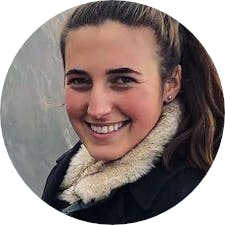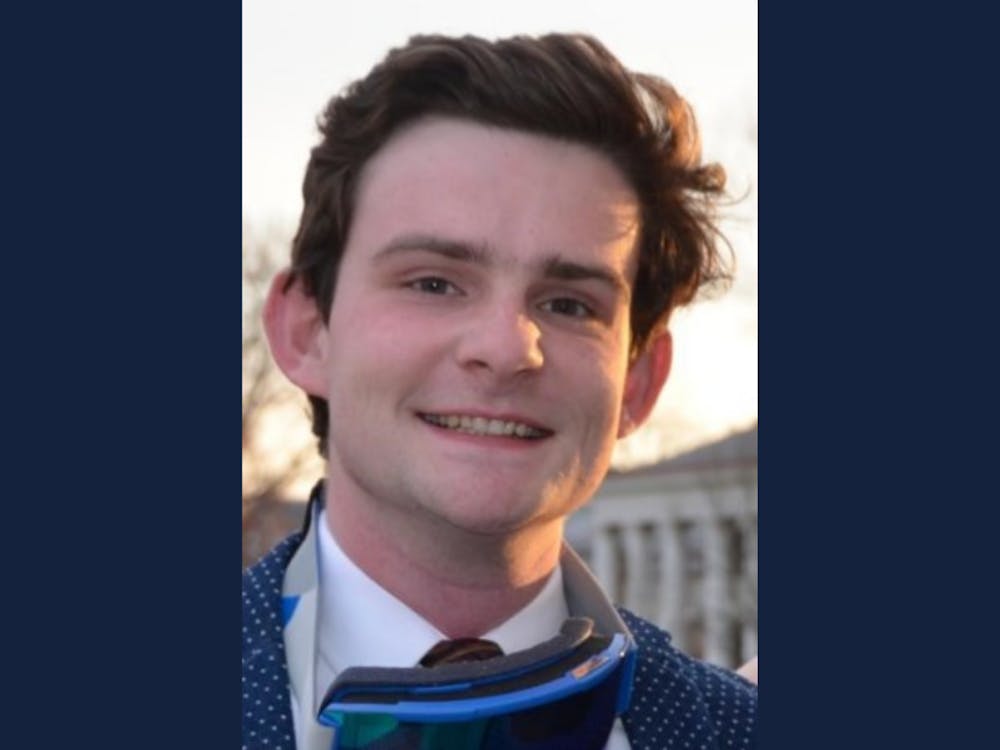From helping his neurobiology labmates with coding for their experiments to going on spontaneous adventures with his friends, Michael Mutersbaugh brought light and joy to all he did.
“In his short 23 years he absolutely lived life to its fullest extent, and shared with others how to do the same,” wrote his parents, Ann and James Mutersbaugh.
Mutersbaugh, who died in a car accident Dec. 12, was a first-year doctoral student in the neurobiology program. Born in Reston, Va., he is survived by his family and many friends from Duke and beyond who admired his generosity and optimism.
Growing up in McLean, Va. introduced Mutersbaugh to activities including swimming, soccer, unicycling, skateboarding and playing the alto saxophone in his high school marching band. He also made time to volunteer at a local retirement residence.
Mutersbaugh graduated from the University of Virginia in spring 2019 with a bachelor’s degree in biomedical engineering. That summer, he joined the lab of Court Hull, associate professor of neurobiology, in the Duke University School of Medicine’s department of neurobiology, as a research technician.
Mutersbaugh had done research the previous summer at the Neuronal Circuits and Behavior Unit National Institute of Health Biomedical Research Center. There, he co-authored a scientific paper that will be published soon, according to an online obituary from his family.
Considering Mutersbaugh’s experience at UVA and the NIH, Hull was happy to invite him to the lab to work on research concerning the cerebellum. As a technician, Mutersbaugh was effectively being taught like a first-year graduate student, Hull said. This mainly included following up on a project from a previous year, but he fell naturally into other positions as well.
“From the moment he showed up, he started doing his own experiments, writing his own code and really delving into the literature,” Hull said. “It was easy with him. He just fell right into our work and started being really proactive and asking questions.”
After a year, Mutersbaugh applied and was accepted into the doctoral program. He also quickly became a “very central figure” in the small lab, Hull said.
“[Mutersbaugh] was really fantastic in the sense that he was probably the most generous person I’d had in the lab with his time. He was always the first person to offer to help,” Hull said.
In recent Zoom sessions with the lab group to discuss the loss, Hull heard lots of stories about how each person had been affected by Mutersbaugh’s kindness.
“He had only been there for a year and a half, but he was the glue between the other people in the lab,” Hull said. “He made friendships and connections that were very strong and that happened really fast.”
Minel Arinel, now a second-year neurobiology graduate student, encountered Mutersbaugh in September 2019 at a happy hour for graduate students. At that time, Arinel was a first-year graduate student. When Mutersbaugh joined her in that role the following year, they became even closer.
Mutersbaugh was very analytical and realistic, Arinel said. However, this didn’t stop him from trying to see the best in everything and bring a positive attitude to all he did.
Arinel especially appreciated his spontaneity. Whenever she was bored, he was ready to jump up and do something.
“He would always make time for his friends,” Arinel said.
In larger social settings, Mutersbaugh was intuitive, able to instantly read people and situations.
“He was very sensitive to the changes in people’s energies and people’s moods,” Arinel said, noting that if anyone in a group was bothered by something small, Mutersbaugh would be the first one to notice.
“He was all about good vibes and creating new energies and new moods. He was actually thinking of ways to improve our moods and energies and bringing positive energies to our social circle,” she said.
When considering how to keep her friend in lasting memory, Arinel embodied his spirit of positivity.
“He lives in all of us. He had a huge impact in our friend circle and among all of his loved ones. But he would want us to move on and have fun,” Arinel said. “...He was all about positivity and moving on and seeing life realistically, as it is. I think that’s what he would want us to do.”
Mutersbaugh’s parents agreed in his online obituary that their son’s spirit is best remembered with a continued passion for life and helping others.
“[Mutersbaugh] would want this for all of us, to have this trigger the opening of our hearts, and a change in our lives,” they wrote. “Also, [Mutersbaugh] would want for this to inspire us to achieve our greatest potential, so that we can not only care for ourselves and families, but those who are less fortunate.”
Hull’s last memory with Mutersbaugh was Friday night, the day before the Saturday accident. Hull recalled Mutersbaugh being so excited about his current experiment that he pulled the professor over around 6:30 p.m. to show him.
“Something I learned from him by just watching him was how to do this and have fun while doing it. That’s something we will remember and continue as a group,” Hull said. “That enthusiasm is something that everybody in the lab really valued and I hope will embrace and try to carry forward.”
The single-car automobile accident occurred in Raleigh when Mutersbaugh’s car left the road and hit a tree. The three passengers who were in the car at the time all survived but are still recovering from their injuries, and in Mutersbaugh’s obituary, his family extended wishes and prayers for a speedy recovery.
Hull said that there may be future plans to memorialize Mutersbaugh on campus, but those are currently unconfirmed. This was echoed in a message from Deans Paula McClain and Mary Klotman to the Graduate School and School of Medicine which confirmed that the University will collaborate with family and friends to safely pay tribute to Mutersbaugh’s life.
Get The Chronicle straight to your inbox
Signup for our weekly newsletter. Cancel at any time.

Maria Morrison was a digital strategy director for The Chronicle's 117th volume. She was previously managing editor for Volume 116.

